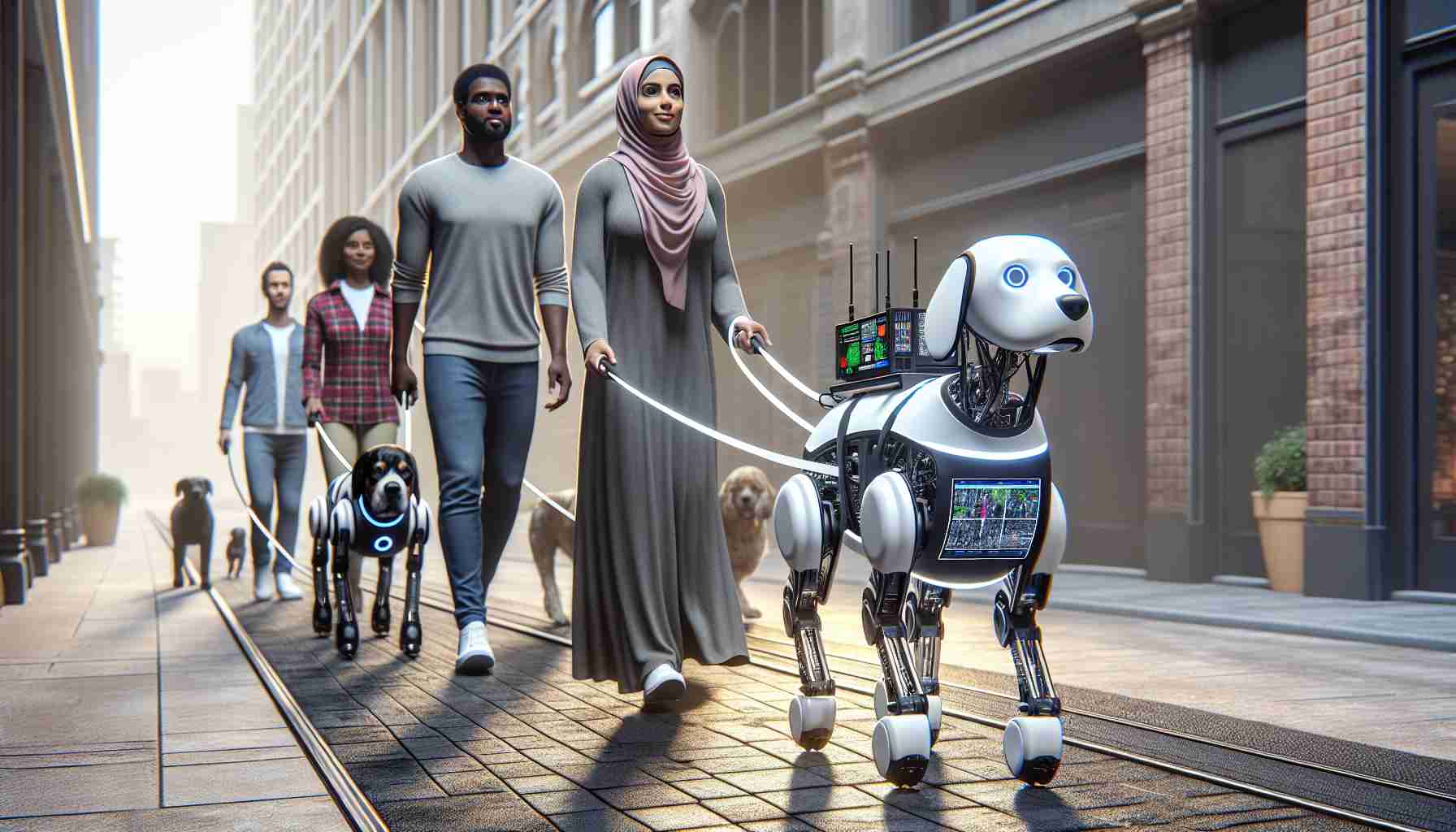Blind and partially sighted individuals may soon have a revolutionary solution to help them navigate indoor spaces. The University of Glasgow is collaborating on the development of RoboGuide, an AI-powered four-legged robot dog designed to assist the visually impaired. This groundbreaking initiative aims to provide greater freedom and independence for individuals in public places such as museums, hospitals, and shopping centers.
The RoboGuide utilizes advanced sensor technology to create accurate maps of its surroundings and assess potential obstacles in real-time. The accompanying software enables the robot to learn the most efficient routes between locations, ensuring seamless navigation while avoiding collisions or disruptions.
Unlike existing robotic assistants, including those reliant on GPS or cameras, RoboGuide surpasses the limitations imposed by outdoor performance or line-of-sight restrictions. By incorporating AI and speech recognition capabilities, the robot can engage in verbal conversations with users, providing invaluable assistance and support.
Olaoluwa Popoola, the principal investigator of the RoboGuide project at the University of Glasgow’s James Watt School of Engineering, emphasizes the potential of this technology to enhance the lives of the visually impaired. He recognizes that many current assistive robots face challenges in indoor settings, limiting their effectiveness. With the development of RoboGuide, a solution that promotes autonomy and independence is within reach.
The ongoing development of RoboGuide was recently showcased at the university’s Mazumdar-Shaw Advanced Research Centre. Its prototype incorporates cutting-edge technologies, and developers aim to release a complete version in the near future.
With an estimated 2.2 billion people worldwide living with some degree of vision loss, and around two million affected individuals in the UK, the significance of this innovation cannot be overstated. The RoboGuide project has garnered support from organizations such as the Forth Valley Sensory Centre Trust (FVSC) and the Royal National Institute of Blind People (RNIB) Scotland, highlighting its potential to improve the lives of many.
In conclusion, the development of AI-powered robot guide dogs marks a significant milestone in assistive technology for the visually impaired. By harnessing the power of AI and advanced sensors, the RoboGuide project aims to create a new era of accessibility and independence, fostering inclusivity for all. As innovation and collaboration continue, we move closer to a world where technology breaks barriers and transforms lives.
Frequently Asked Questions (FAQ) about the RoboGuide Project:
The source of the article is from the blog oinegro.com.br
